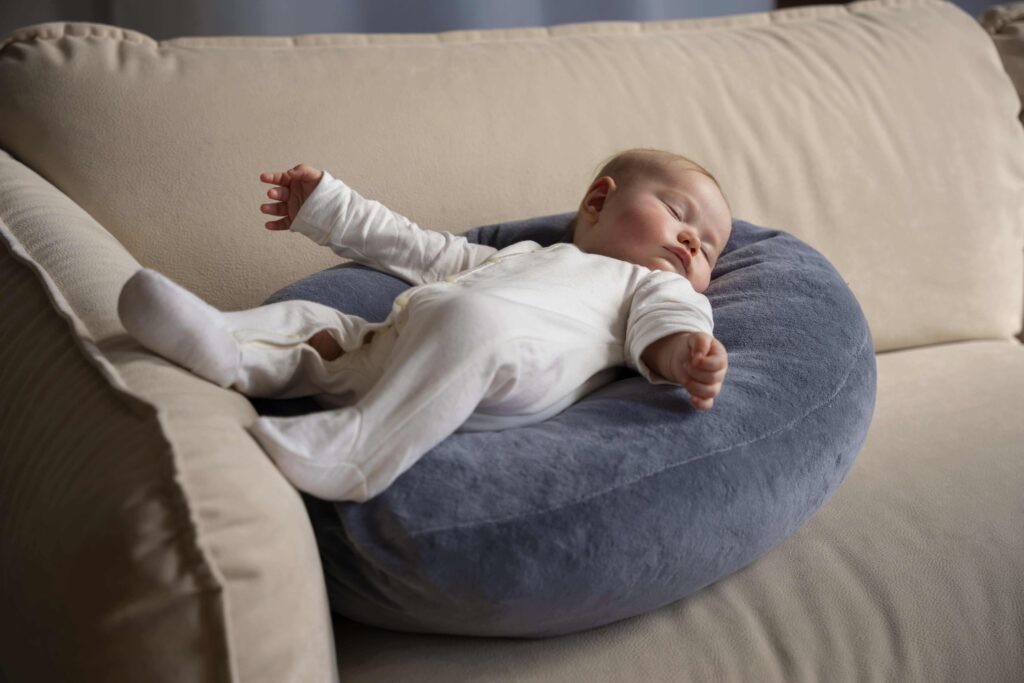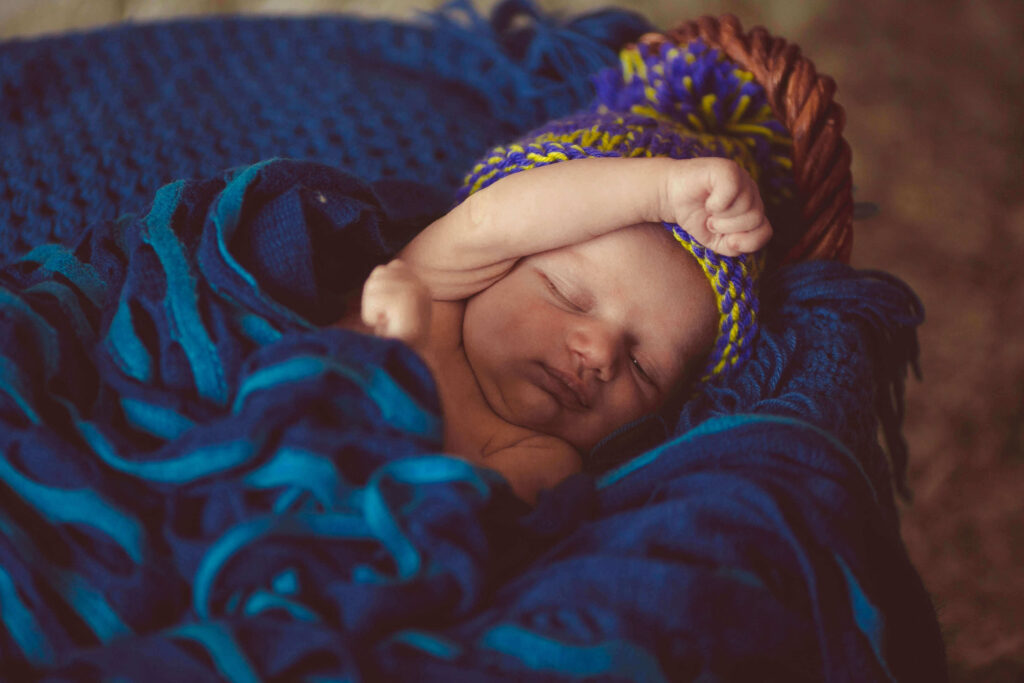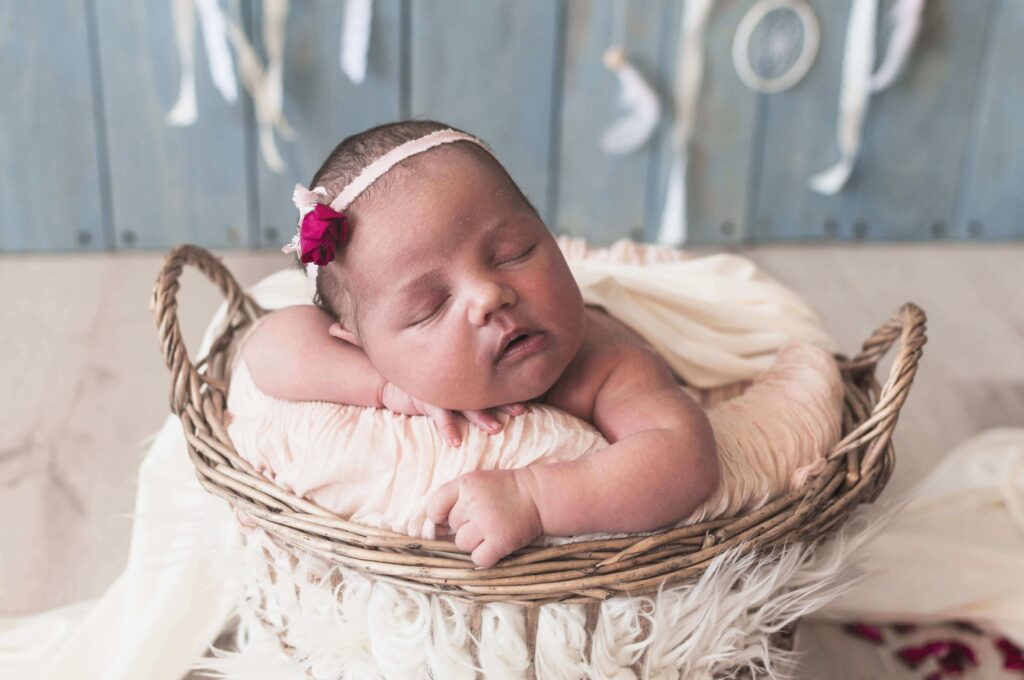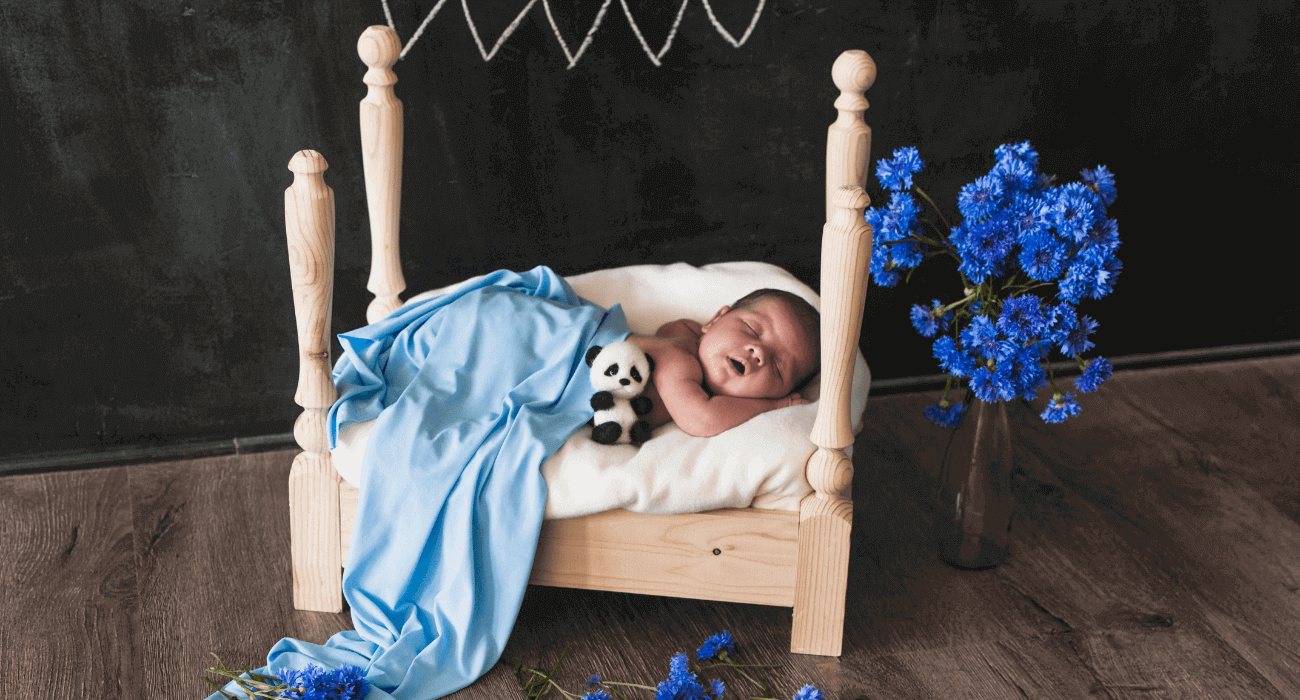Newborns can nap in both light and dark environments. A consistent, dark environment may promote better sleep as they age.
Ensuring your newborn gets sufficient sleep is crucial for their development and overall well-being. Sleep patterns for infants can vary widely, and parents often wonder about the ideal conditions for naptime. Creating an optimal sleep setting can involve adjusting the light levels.
While adults and older children may benefit from a darker room for sleep, newborns do not have a fully developed sense of day and night. This means that in the early weeks, they might sleep equally well in varying lighting conditions. Nevertheless, as they grow, introducing a darker room during naps can help establish a healthy sleep routine. The key is to monitor your child’s sleep habits and adapt as necessary to support their natural sleep cycles and health.
The Sleep Needs Of Newborns

Newborns require a lot of sleep to grow and develop. Understanding their sleep needs is important for their health. Many parents wonder whether a dark environment is beneficial for their newborn’s nap time. This section explores the significance of sleep for newborns and their unique sleep patterns.
Why Sleep Is Crucial
Sleep plays a key role in a newborn’s life. It affects their physical growth, brain development, and immune system. Newborns need sleep to process new information and recover from the sensory overload of the world around them.
- Physical growth – Sleep triggers growth hormone release.
- Brain development – Vital for forming new neural connections.
- Immunity – Adequate sleep strengthens the immune system.
Understanding Newborn Sleep Patterns
Newborns sleep in short bursts throughout the day and night. Their sleep cycle is different from adults and older children. It is normal for newborns to wake up every few hours to eat.
| Age | Total Sleep (Hours/24h) | Number of Naps |
|---|---|---|
| 0-3 months | 14-17 | 4-5 |
| 4-11 months | 12-15 | 2-3 |
Their sleep patterns evolve as they grow. By understanding these patterns, parents can create a nurturing sleep environment. This might include deciding whether to encourage naps in a dark room or not.
Myths Vs. Facts: Newborn Sleep
Newborns often spark debates on the best sleep practices. Should they nap in the dark? Many parents wonder. Let’s debunk myths and spotlight facts.
Common Misconceptions
Sleep myths can confuse new parents. Let’s clear the air:
- Babies need silence to sleep – Not always true.
- Always dark for nap time – Not necessary.
- Strict schedules are a must – Flexibility often helps.
What Research Says
Studies reveal some surprising insights into newborn sleep:
| Aspect | Research Insight |
|---|---|
| Light Exposure | Dim light may help establish circadian rhythms. |
| Sound | Some noise mimics the womb and is comforting. |
| Sleep Patterns | Babies have unique sleep needs; one size doesn’t fit all. |
Benefits Of Napping In The Dark

Newborns need lots of sleep. Napping in the dark can help them sleep better. It can also improve their sleep schedule. Let’s look at why dark naps are good for babies.
Promoting Melatonin Production
Darkness triggers melatonin, the sleep hormone. This hormone helps babies fall asleep. It also keeps them asleep longer. A dark room during nap times boosts melatonin. This helps set a newborn’s internal clock.
Minimizing Sleep Disturbances
Sleeping in the dark minimizes disruptions. It reduces the chances of sudden wake-ups. Things like light changes won’t disturb a baby’s sleep. Dark naps mean better, deeper sleep for newborns.
- Better rest comes from dark, quiet environments.
- Constant light can lead to short naps.
- Darkness helps babies learn night from day.
Potential Drawbacks Of Dark Napping
Newborns often nap better in the dark. Yet, there can be drawbacks.
Dependency On Darkness
Babies might need dark to sleep. This can be tricky.
- Hard to nap elsewhere.
- May resist sleep in the light.
- Parents need extra effort for dark rooms.
Issues With Sleep Transitions
Dark napping can make sleep transitions hard. Here’s why:
| Transition Issue | Reason |
|---|---|
| Day to night confusion | Babies may mix up sleep times. |
| Travel sleep troubles | Sleeping in new places is hard. |
Creating An Ideal Sleep Environment
Creating an Ideal Sleep Environment for newborns is key. It helps them sleep well. Good sleep is important for their health and growth. Let’s see how to balance light and darkness. Also, learn about the right room setup and sleep aids.
Balancing Light And Darkness
Newborns need a mix of light and dark for good sleep. During the day, natural light is good. It sets their body clock. At night, darkness helps them know it’s time to sleep. Use blackout curtains to keep the room dark.
- Daytime: Let natural light in.
- Nighttime: Make the room dark with curtains.
Room Setup And Sleep Aids
The right room setup can boost sleep quality. A calm, quiet room is best. Use a comfortable crib. A sound machine can help too. It plays soft, soothing sounds. This can make sleep easier for your baby.
| Item | Use |
|---|---|
| Comfortable crib | For safe, cozy sleep |
| Sound machine | To play soothing sounds |
Remember, every baby is different. What works for one may not work for another. Keep trying different things to find what’s best for your baby.
Adapting To Real-life Conditions
As parents, we know not every day is the same. Adapting to Real-Life Conditions means teaching our newborns to sleep well, anytime, anywhere. This skill is crucial. It helps babies handle changes in their routine. It also makes life easier for parents.
Flexibility In Sleep Routines
Creating a flexible sleep routine is key. Babies who nap in different settings adapt better. They become less fussy and more open to change. This approach helps in long-term sleep training.
- Start with dim light naps.
- Gradually introduce well-lit naps.
- Keep the environment calm and soothing.
Coping With Variability
Coping with variability in sleep environments is essential. Babies learn to sleep through noise and light. This skill is valuable during travel or family events. It also benefits day-to-day flexibility.
- Expose babies to gentle noise during naps.
- Use a portable white-noise machine if needed.
- Practice napping in various parts of the home.
Remember, every baby is unique. Patience and consistency are important. These strategies ensure your newborn adapts well to the world around them.
Expert Opinions On Newborn Sleep

Expert opinions on newborn sleep guide parents through the journey of early parenthood. Understanding how your newborn should nap can impact their development and overall sleep patterns. Experts like pediatricians and sleep consultants offer valuable insights into creating the best sleep environment for your little one.
Pediatricians’ Recommendations
Pediatricians emphasize the importance of safe sleep environments. They suggest that darkness can signal to the baby that it’s time to rest. Here are some key points pediatricians make:
- Darkness mimics the womb, providing a familiar, comforting setting for newborns.
- Using blackout curtains can help create a dark, serene atmosphere conducive to sleep.
- However, they also stress that safety comes first. Always ensure the baby’s sleep space is free from hazards, with the baby sleeping on their back.
Sleep Consultants’ Tips
Sleep consultants often focus on sleep cues and routines. They offer practical tips for parents:
- Introduce a pre-nap routine that helps the baby wind down and understand it’s nap time.
- Use gentle nightlights if complete darkness isn’t achievable or comfortable for the baby.
- Keep naps consistent to help establish a healthy sleep rhythm for your newborn.
Remember, each baby is unique. What works for one might not work for another. Observe and adapt to your baby’s preferences to find the perfect balance.
Navigating The First Months
Navigating the First Months with a newborn can feel overwhelming. Parents often wonder about the best conditions for their baby’s naps. Should the room be dark or light? Understanding newborn sleep patterns and creating a conducive environment can make a significant difference.
Establishing Good Sleep Habits
Creating a sleep-friendly environment is crucial for newborns. A dark room during nap times can signal to babies that it’s time to rest. Darkness helps in producing melatonin, a sleep-inducing hormone. This can establish a sleep routine and aid longer, more restful naps.
- Keep the room dark: Use blackout curtains to simulate nighttime.
- Consistent schedule: Put your baby down at the same times each day.
- Quiet environment: Reduce noise levels around naptime.
- Comfortable temperature: Ensure the room is not too hot or cold.
When To Seek Help
Sometimes, despite a dark room and routine, babies struggle with sleep. Persistent difficulty in napping or signs of distress during sleep may require attention. It’s important to recognize when to seek advice from a pediatrician.
| Signs to Watch For | Action to Take |
|---|---|
| Short naps or no naps | Consult your pediatrician |
| Excessive fussiness | Check for underlying issues |
| Changes in sleep patterns | Monitor and record behaviors |
Frequently Asked Questions
Is It Better For Newborns To Nap In The Dark?
Yes, dark environments mimic nighttime and can improve sleep quality by signaling the brain it’s time to rest.
Can Daytime Darkness Affect A Newborn’s Sleep Cycle?
Not significantly. It helps differentiate night from day, reinforcing the natural sleep-wake cycle in newborns.
How Long Should Newborns Nap During The Day?
Newborns typically require several short naps, totaling up to 16-18 hours of sleep per 24-hour period.
Do Dark Naps Help With Newborn Development?
Yes, quality sleep in a dark environment supports healthy brain development and physical growth in newborns.
Are There Any Risks To Napping In The Dark?
No major risks, but ensure the sleeping environment is safe and the baby is monitored regularly.
Conclusion
Navigating newborn sleep habits can be challenging. Ensuring your baby naps in a dark room may promote better sleep quality and regular sleep cycles. Keep in mind every infant is different, and creating a tailored sleep environment is key. Embracing darkness for naptime could just be the secret to a well-rested baby—and a happier household.

